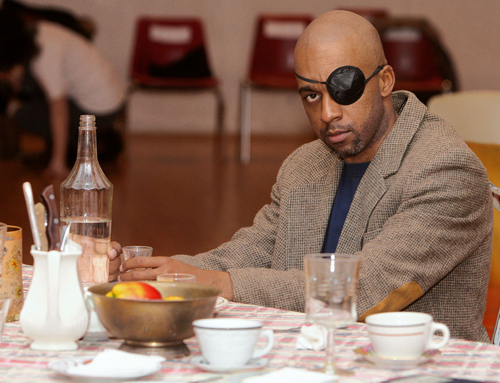One Brooklyn Health, a non-profit medical service provider comprised of three Kings County hospitals, marked World AIDS Day by taking the opportunity to raise awareness about HIV/AIDS and how the virus continues to impact the borough today.
Dec. 1 marked the 34th annual World AIDS Day, and all three OBH campuses — Interfaith Medical Center, Brookdale Hospital Medical Center and Kingsbrook Jewish Medical Center – participated by taking time to inform the community on the multiple HIV care services offered throughout the OBH system, as well as outlining the different ways Brooklynites can gain access to care.
“Our HIV awareness day is designed to educate all members of our community about HIV with a special focus on those in need of care and treatment options that are accessible and convenient,” said Dr. Patrick Lee, chair of medicine at OBH. “We want our community to know that One Brooklyn Health offers specialized care for HIV by health care professionals who are experienced in meeting the medical, social and mental health needs of those living with the virus.”
AIDS, or acquired immune deficiency syndrome, is the name given to the multiple potentially life-threatening infections and illnesses that can occur if an individual’s immune system has been compromised by HIV. Human immunodeficiency virus (HIV) is a virus transmitted sexually or through contact with infected blood which attacks the body’s immune system, interfering with its ability to fight off infections or illnesses.
There are three stages of HIV, the first being acute HIV infection, then chronic HIV infection and finally AIDS. Since the beginning of the epidemic, about 84.2 million people globally have been infected with the virus and approximately 40.1 million people have died.
There remains no cure for HIV/AIDS, but there are many avenues and increasing access to HIV prevention, diagnosis and care. When HIV/AIDS was first detected in 1981, the diagnosis was almost always a death sentence. Today, there are many medications that can prevent the progression of HIV before it becomes AIDS and many people living with the virus are able to lead normal lives with the help of medication.
On World AIDS Day, medical specialists from OBH’s three campuses informed the community on how to prevent infection, as well as how with the help of antiviral therapy medications (ART) can help those with HIV live long and healthy lives.
Marking the day was especially important to OBH, said Dr. Lee, as some of the Central Brooklyn neighborhoods OBH caters to continue to see high rates of HIV diagnoses.
“Though new HIV diagnoses continue to decline across New York City, Crown Heights and other Central Brooklyn communities cared for by One Brooklyn Health, continue to see high rates of people with newly diagnosed HIV,” he said. “Fortunately, HIV care and treatment remains highly effective in helping people with HIV live longer, experience fewer complications from the disease, and minimize the risk of transmitting HIV to others.”























